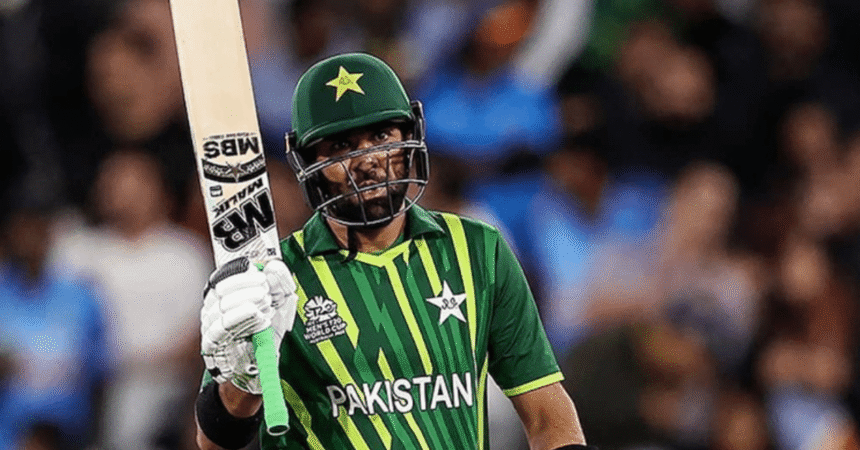In the wake of a disappointing defeat in the Champions One-Day Cup final, UMT Markhors’ captain Iftikhar Ahmed unleashed a fervent critique of the media’s role in shaping player reputations and public expectations. Following a five-wicket loss to the Panthers at Iqbal Stadium in Faisalabad, Ahmed expressed his frustrations during a post-match interview, highlighting how media practices can adversely affect players’ careers and the integrity of the sport itself.
Overview of the Match
The final, held on a tense day in Faisalabad, showcased a stark contrast in performance between the two competing teams. The Markhors struggled throughout their innings, posting a meager total of just 123 runs in 33.4 overs. The Panthers, under the leadership of Shadab Khan, made quick work of the chase, reaching the target in a mere 18 overs. The Markhors’ batting lineup faltered under pressure, with only Fakhar Zaman managing to make a notable contribution with his 46 runs. The Panthers’ bowlers—Mohammad Hasnain, Arafat Minhas, and Sajid Khan—were particularly effective, each claiming three wickets and dismantling the Markhors’ batting order with precision.
Iftikhar Ahmed’s Post-Match Comments
Following the match, Ahmed’s emotions were palpable as he reflected on the defeat. His comments, “Cricket is ruined because of you people,” were directed at the media, revealing his frustration over the tendency to overhype players based on singular performances. He further stated, “Please don’t hype players after one good innings. Let them prove their worth through consistent performances.” This statement encapsulates the growing concern among players regarding the media’s impact on their careers.
Ahmed’s criticism underscores the peril of rapid fame that can accompany a standout performance. When players are celebrated for brief moments of success, they often find themselves under immense pressure to maintain that level of performance, leading to an unhealthy environment in which they are scrutinized mercilessly when they fail to deliver.
The Consequences of Media Hype
The relationship between athletes and the media has always been complex. While media coverage can enhance a player’s profile and bring attention to their skills, excessive hype can also create unrealistic expectations. Ahmed’s concerns resonate with many in the cricketing community who believe that players should be judged based on a body of work rather than isolated performances.
In professional sports, especially cricket, consistency is paramount. Ahmed emphasized that the true measure of a player’s ability is their performance over time, rather than in sporadic matches. The pressure created by media narratives can lead to significant mental stress for players, particularly young athletes who are still developing their skills. This pressure can stifle growth and lead to burnout, as players feel the weight of expectations bearing down on them.
Performance Analysis: The Final Match
Analyzing the Markhors’ performance in the final provides insight into the challenges they faced. The batting collapse can be attributed to several factors, including the exceptional bowling by the Panthers and the psychological toll of playing in a high-stakes match. The inability to build partnerships and the lack of a solid start put the Markhors in a precarious position from the outset.
Fakhar Zaman’s innings, though commendable, was not enough to propel the team to a competitive total. The lack of support from the rest of the batting lineup further compounded the situation, leading to a defeat that left the Markhors and their supporters disheartened.
On the other hand, the Panthers displayed a clinical approach to their innings. Shadab Khan’s leadership was evident in the way his team executed their game plan. The bowlers took advantage of the conditions and maintained pressure throughout the Markhors’ innings. Their ability to capitalize on mistakes was a testament to their skill and preparation, ultimately leading them to victory.
The Role of Media in Player Development
Iftikhar Ahmed’s comments prompt a broader discussion about the media’s responsibility in the context of sports. The media plays a vital role in shaping public perception and influencing how players are viewed both on and off the field. When reporters and commentators celebrate young talents prematurely, it can create a skewed narrative that undermines the importance of hard work and perseverance.
Cricketing legends have often spoken about the necessity of patience in player development. Young cricketers need time to hone their skills, adapt to the pressures of professional play, and learn from their mistakes. This journey is essential for their growth, yet the media’s focus on immediate results can detract from the developmental process.
Moreover, media outlets have the power to foster a more supportive environment for athletes. By highlighting the challenges players face and providing insights into their training regimens and personal stories, journalists can create narratives that celebrate resilience and hard work rather than just immediate success. This approach could encourage young players to view their careers as a long-term journey rather than a series of isolated events.
Reactions from Fans and Analysts
The public reaction to Ahmed’s comments has been mixed. Many fans and analysts sympathize with his frustrations, understanding the pressures that players face in the limelight. Social media platforms have seen a surge of discussions regarding the balance between media coverage and player well-being, with many advocating for a more measured approach to player evaluation.
Critics, however, argue that players should be able to handle scrutiny as part of professional sports. They contend that criticism, when warranted, can drive players to improve and elevate their performance. This perspective underscores the competitive nature of sports, where the stakes are high, and players must learn to cope with external pressures.
The Importance of Mental Health Awareness
The dialogue initiated by Iftikhar Ahmed also highlights the importance of mental health awareness in sports. Athletes often experience immense pressure to perform, leading to stress, anxiety, and other mental health challenges. The culture of overhyping players can exacerbate these issues, making it essential for teams and organizations to prioritize mental well-being.
In recent years, there has been a growing recognition of the need for mental health support within professional sports. Many cricket boards are now implementing programs aimed at providing psychological support to players, helping them navigate the pressures of the game. This trend is a positive step toward creating a more sustainable environment for athletes, allowing them to focus on their performance without being overwhelmed by external expectations.
Looking Ahead: Lessons for the Future
As the cricketing community reflects on the events following the Champions One-Day Cup final, several key lessons emerge. First and foremost, it is crucial to foster a culture that values consistency and long-term performance over momentary success. This shift in focus can help alleviate the pressures placed on young athletes and allow them to develop their skills at a manageable pace.
Furthermore, the media has a vital role to play in shaping narratives around players. By adopting a more nuanced approach to coverage, journalists can contribute to a healthier environment for athletes. Highlighting stories of perseverance, growth, and teamwork can provide a more comprehensive understanding of the sport and its players.
Additionally, ongoing conversations about mental health in sports are essential. The more openly athletes can discuss their struggles and experiences, the more normalized these conversations will become. This shift can encourage players to seek help when needed, ultimately fostering a more supportive community.
Iftikhar Ahmed’s powerful critique of media practices following the Markhors’ loss serves as a clarion call for change within the cricketing community. As the sport continues to evolve, it is imperative to address the impact of media narratives on players and their development. By promoting a culture of patience, consistency, and mental well-being, stakeholders can create an environment that nurtures talent and supports athletes on their journeys.
The Champions One-Day Cup final may have ended in disappointment for the Markhors, but the lessons learned from this experience have the potential to influence positive change in cricket. As players, coaches, and fans come together to advocate for a more balanced approach to the sport, the future of cricket can be one where athletes are celebrated not just for their triumphs but for their resilience and dedication to their craft.
#IftikharAhmed #ChampionsOneDayCup #Cricket #MediaCriticism #PakistaniCricket #UMTMarkhors #SportsMentalHealth







